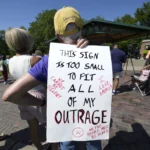WOMEN YOU SHOULD KNOW IN WYOMING: Tribal Relations Specialist Tailors Food Aid to Indigenous Needs
Jacqueline White applies cultural knowledge to help Food Bank of Wyoming reach more hungry families on Wind River Indian Reservation
- Published In: Other News & Features
- Last Updated: Aug 02, 2023
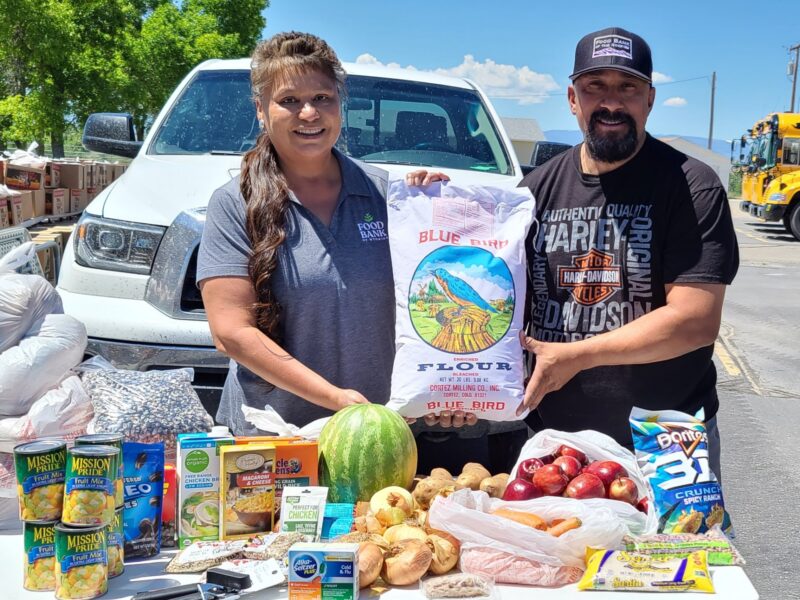
Jacqueline White, tribal relations specialist for the Food Bank of Wyoming, and Joseph Hermocillo distribute food on the Wind River Indian Reservation. They hold a bag of Blue Bird flour, one of the culturally relevant foods the organization sources for its Native American clients. (Courtesy photo from Jacqueline White)
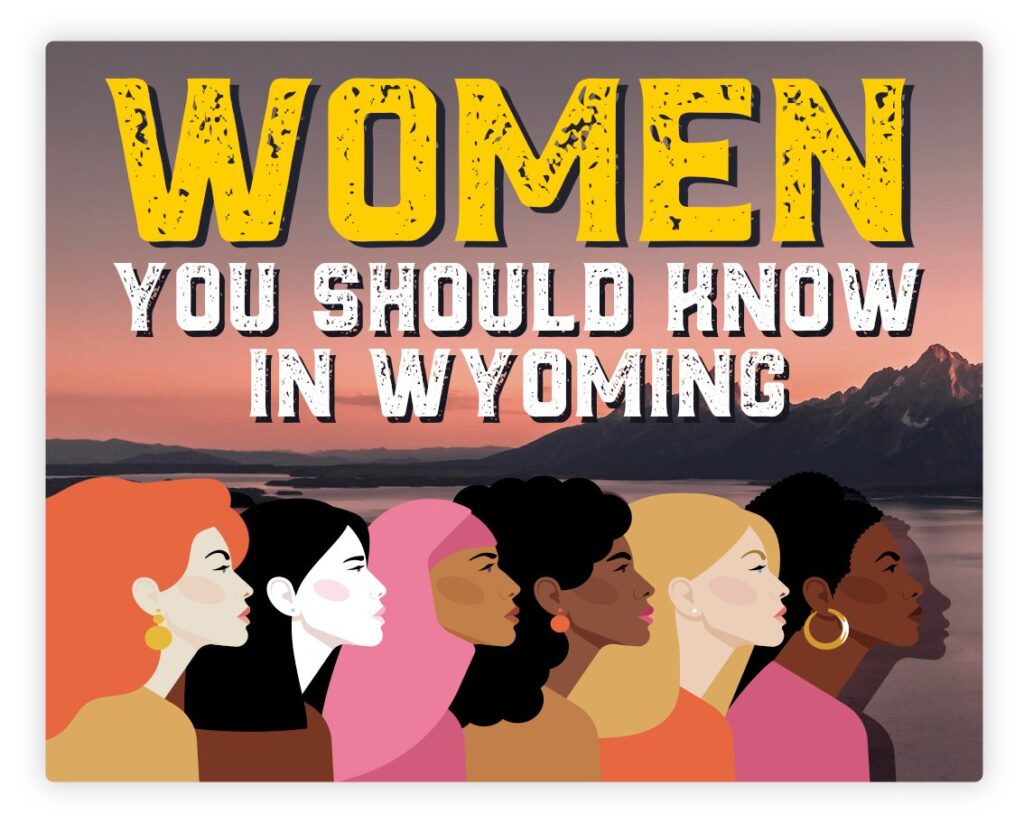
By Elizabeth Sampson
Special to the Wyoming Truth
A cheerful blue bird, chirping against a bright blue sky on a reusable cotton bag of Blue Bird flour, is a welcome sight for clients of the Food Bank of Wyoming on the Wind River Indian Reservation.
This brand joins chokecherries, wild game and Indian corn in culturally relevant food options distributed by the Food Bank of Wyoming to the Northern Arapaho and the Eastern Shoshone tribes.
Jacqueline White, who introduces herself by her Arapaho name —Te3ou Niibeisei, which means Singing Crane Woman in English — is the tribal relations specialist for Food Bank of Wyoming, a nonprofit dedicated to ending hunger in the state. White works to bring mobile food pantries that stock culturally relevant food to the reservation and serves as a bridge between Indigenous clients and the organization.
White, 54, of Fort Washakie, took on the full-time role at the height of the COVID-19 pandemic in November 2020.
White said it is important to ask people what foods are culturally significant to them, rather than make decisions without their input. Her method of gathering this critical information has been adopted by other food banks in the region, including some in Colorado.
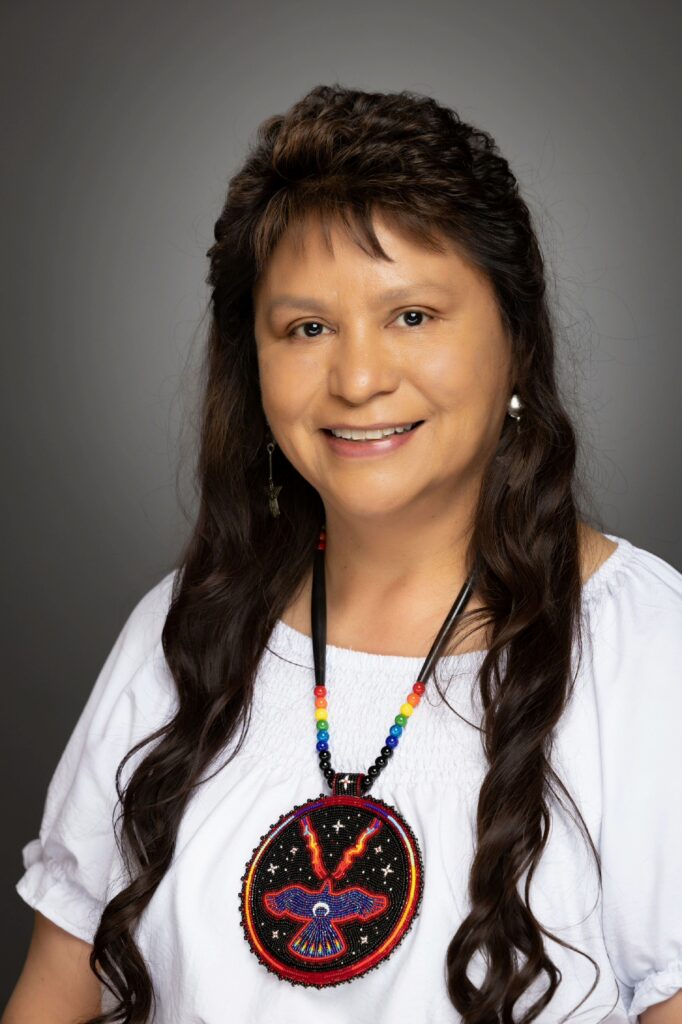
“Old food banking is you give them a box of food, and say, ‘Here you go,’” White said. “Sometimes the people don’t know what the foods are or how to cook them. We provide the food that’s preferred by those cultures because they are going to utilize them.”
In Wyoming, those foods include blueberries, which stand in for the chokecherries that are used ceremonially and Indian corn, which is sourced from the Ute Mountain Tribe. Shoshone and Arapaho Fish and Game coordinate filling 10 elk tags, with the harvested elk meat donated for distribution. As for the Blue Bird flour, White said it’s the preferred brand for making fry bread.
Hungry households
White, who is both Northern Arapaho and Chippewa Cree, grew up with five siblings and her parents on the Rocky Boy Reservation in Montana and the Wind River Indian Reservation. She said large families like hers are still the norm, and that knowledge helped her persuade Food Bank of Wyoming to provide more than the standard of one box of food per family.
“We have multiple households that live in one house—we have multiple generations of people that live in one household,” White said. “We have up to 20 people in one home. We can’t just give those people one box, because that’s going to be like a snack for them, it’s not even going to create a meal. So we changed that.”
Food Bank of Wyoming now distributes food in two locations on the reservation every month, serving about 600 households. This year, the organization already has distributed 195,193 pounds of food—inching toward the 269,070-pound total in 2022.
White said there is great need for food distribution on the reservation because of the economic and access challenges its residents face. While the 2020 Census showed Fremont County with a 4.5% unemployment rate, she said the numbers on the reservation are actually higher: the Eastern Shoshone Tribal Council told her that the reservation’s unemployment rate is between 60% and 80%.
The pandemic exacerbated the food insecurity burden, and post-pandemic, people continue to struggle.
“All of this was because of Covid,” White said. “Our people were dying. People were sick. We’re already the highest poverty-stricken part of Wyoming, and there wasn’t a lot of food access.”
White said there are only two places on the 2.2-million-acre reservation where residents can buy groceries—a general store and a convenience store. There are larger stores in nearby Lander and Riverton, but not everyone has transportation.
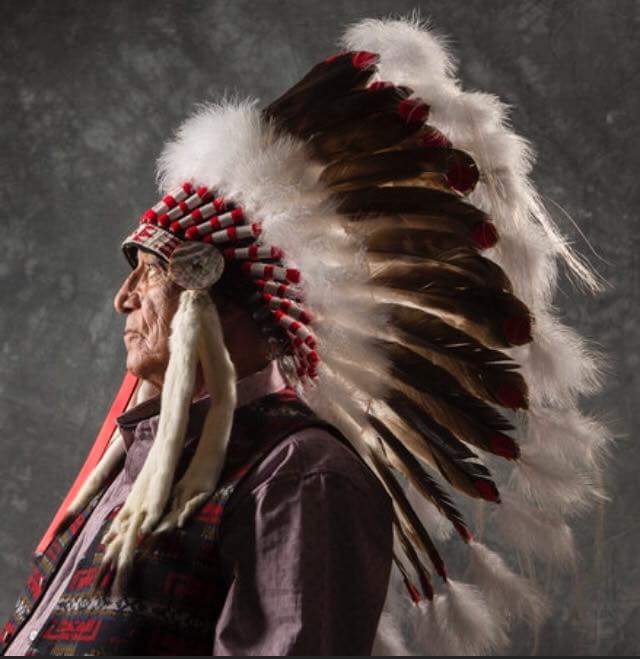
There also are food pantries in those towns, but often they are only open a couple days per week.
“Our people are hungry every day, not just on Tuesdays and Thursdays,” White said.
With that in mind, the Food Bank of Wyoming and other tribal organizations, community groups and tribal elders are developing food pantries on the reservation that are available as often as people need them.
Hope White, deputy executive director of the Eastern Shoshone Housing Authority, runs the mobile food pantry for the Fort Washakie community and happens to be White’s granddaughter. She said her grandmother brings passion to everything she does, and when she channeled her drive into food distribution, food access improved on the reservation.
“For the first time, the reservation has a mobile food pantry and a partnership with Wyoming Food Bank,” Hope said. “And for the first time, Feeding America [the nation’s largest domestic hunger-relief organization] knows the Wind River Indian Reservation exists because of her…I’m thankful for her not giving up because there were so many obstacles and so many roadblocks. And she eventually just climbed over them.”
Roadblocks like finding enough volunteers willing to work in freezing winter weather and scorching summer sun to distribute food. Or managing the frustration of people who stand in line in that same weather for food or the dismay of those who wait only to learn the food has run out.
Rachel Bailey, executive director of the Food Bank of Wyoming, applauded White’s efforts to reduce food disparities.
“There are many barriers to food access on the Wind River Reservation, and Jackie has helped the Food Bank of Wyoming think about innovative ways to work alongside tribal communities and their efforts to alleviate hunger,” Bailey said.
A deeply personal mission
Feeding the hungry is more than just a job for White, who previously worked for the land buy-back program of the U.S. Department of the Interior. It is a way she pays tribute to her late husband, Crawford White, Sr., a tribal elder who died in January 2020. He was one of the Four Old Men, who are chosen as ceremonial leaders of the Arapaho.
“I wanted to honor him—to follow what he taught me and to be helpful to people,” White said. “When I got this job, I thought it’s another way I can be helpful to people in need.”
White said food is sacred to the Arapaho people, who include it in their ceremonies.
“One elder told me, ‘You are so fortunate. It’s the highest honor of our people to give one another food,’” White recalled.
White has taken the message about culturally relevant food to conferences nationwide, including the National Native Nutrition Conference in Minnesota last May. She strives to create understanding for the unique culture and needs of her people.
“We’re not like everybody else—we’re unique.” she said. “It’s important when you’re building relationships to have that respect—learn about people, learn about our culture, our traditions, our way of life….When you are working with people, you’re going to make better decisions when you have more knowledge, when you have better understanding.”
She also shared her story with Feeding America, which filmed her work on the reservation and shared the video with TV networks, including Fox News. Viewers from all over have contacted White to praise her work.
Said White: “It’s a good feeling to know that I have made a difference in people’s [lives] with the work that I do.”










